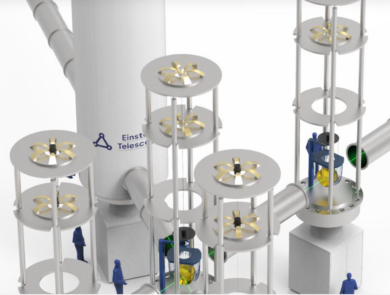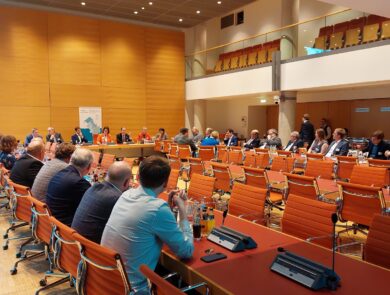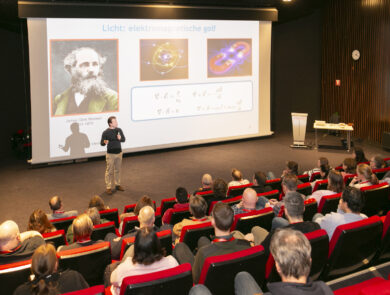Innovation voucher for Dutch-Belgian cooperation for Einstein Telescope

Dutch Innovation Handling and Belgian Calculus are going to cooperate within the Interreg EMR project ET2SMEs (Einstein Telescope to Small and medium-sized enterprises).
They will develop a system that can measure and monitor the temperature in the underground tubes of the Einstein Telescope very accurately. The temperature measurement itself takes place via a measuring system based on sound waves that was developed by Innovation Handling. Calculus is developing a cloud platform to provide insight into and monitor the temperature measurements. It concerns groundbreaking new technology. They recently received an innovation voucher worth € 50,000.
About the Einstein Telescope
The Einstein Telescope is a unique project with enormous impact that will put Europe on the map worldwide. The Euregio Meuse-Rhine is one of the regions that qualifies to host this large-scale underground research infrastructure. The other possible location is Sardinia. The technology is already being developed and this provides sustainable opportunities for companies. Calculus and Innovation Handling have seized this opportunity and will use the awarded funding for the development of their joint innovation.
Sensitive technology
The future underground Einstein Telescope will detect gravitational waves. These are ripples in the universe caused by extreme events, such as the collision of two black holes. To detect the waves, lasers will bounce back and forth between mirrors inside vacuum tubes in the observatory’s kilometre-long tunnels. This is highly sensitive technology, where environmental factors such as temperature are crucial. A small deviation can have a major impact on the accuracy of the measurements. The temperature in the tubes must therefore be monitored constantly.
Wilhelm van Schaik, CEO of Innovation Handling: “With the acoustic sensors, supported by the cloud platform, we think we can make a good contribution to realising controlled climate and process conditions within the facilities of the Einstein Telescope. Permanent monitoring enables rapid intervention in the event of disruption. In addition, it is possible to use this unique measurement concept in other applications as well.”
Rob Van Dun, CEO of Calculus: “We are particularly pleased to start a new partnership with Innovation Handling. In this way new market segments also appeared on our radar. Moreover, we can seamlessly integrate the new technology we are developing for the Einstein Telescope into our innovative Internet of Things- building management system.”
For questions, please contact:
Alyssa Horemans or Katrien de Paep of POM Limburg: alyssa.horemans@pomlimburg.be or katrien.de.paep@pomlimburg.be
René Kessen of LIOF: rene.kessen@liof.nl
For more information about the project, visit the ET2SMEs website (opens in new window).


